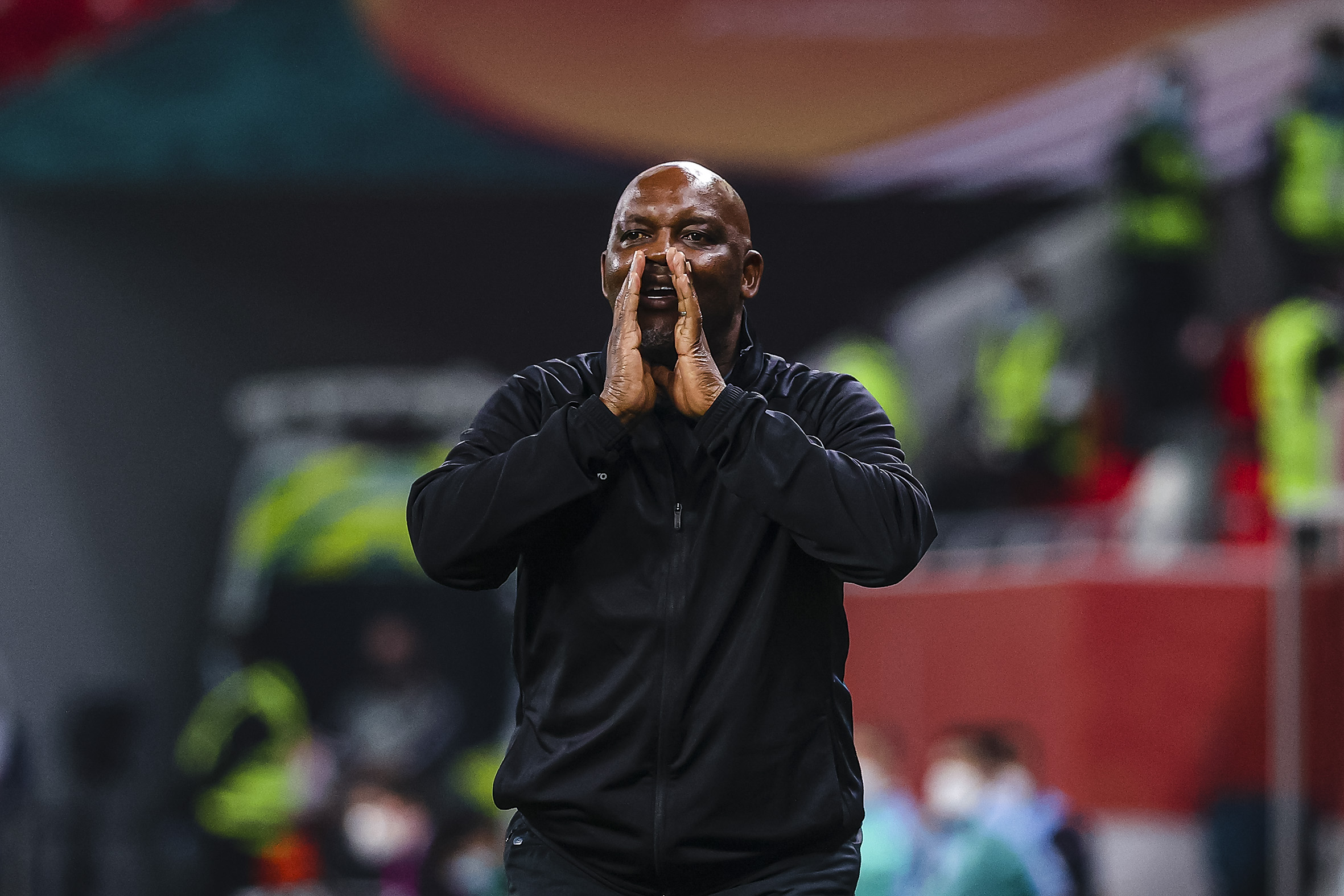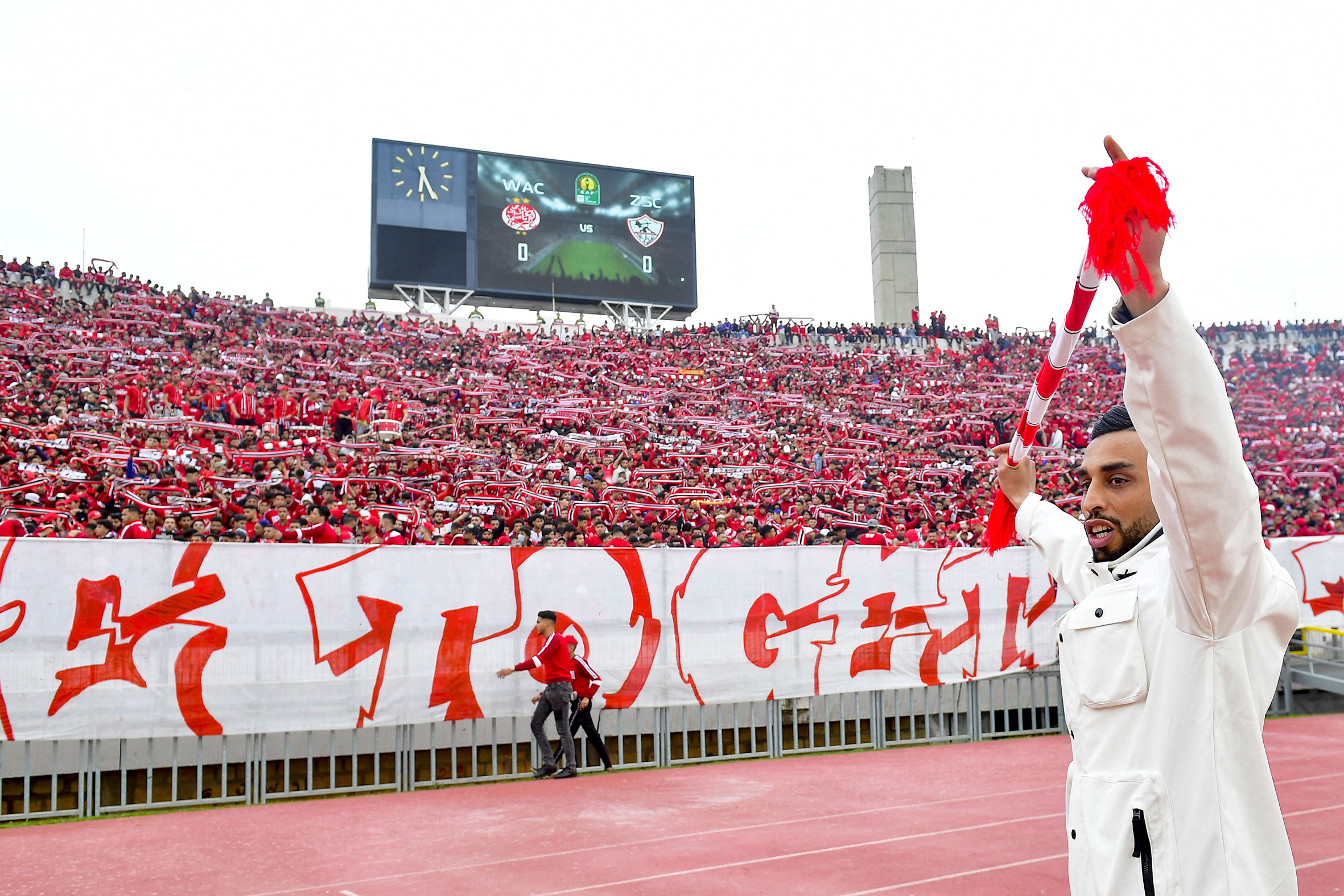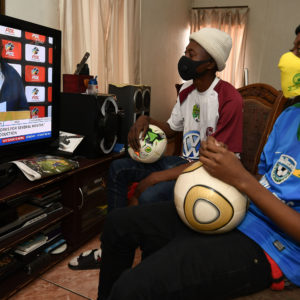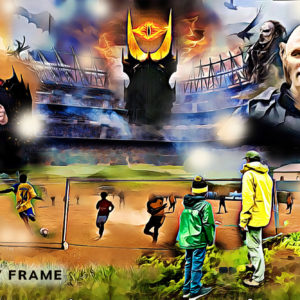The plot thickens as Champions League final nears
Fans are hoping that yet another contentious decision by the Confederation of African Football does not mar what should be a memorable event, with much at stake for the coaches too.
Author:
27 May 2022

As if there were not enough subplots around Wydad Casablanca’s clash with Al Ahly in the CAF Champions League final on 30 May, the continent’s football governing body added another one with a questionable decision.
The Confederation of African Football (CAF) announced the Mohammed V Stadium in Casablanca, which Wydad uses as its home ground, as the “neutral” venue of the final between the Moroccan domestic league title holders and the back-to-back continental Champions League winners from Egypt. This will be a showcase of African football excellence, with interest from beyond the continent’s borders. Unfortunately, administrative issues have once again plagued Africa’s premier interclub competition and threaten to overshadow the match.
This year’s scandal relates to the date and location of the final being announced only after the finalists were confirmed. It makes a mockery of CAF’s decision to change finals from being played on a two-leg home-and-away basis to a once-off match at a neutral venue. Common sense dictates that the date and location of a single-leg final match in any Champions League equivalent should typically be known prior to its commencement to eliminate any appearance of bias.
Related article:
In a curt statement, CAF seemed to justify its position by indicating that all other bids were withdrawn, including one from the Senegalese Football Federation, leaving the Royal Moroccan Football Federation as the only bidder.
According to sources, a qualifying vote designating Morocco as the host nation did occur in late April, but its result was not announced to the public. It was also reported that CAF president Patrice Motsepe tried to arrange a discussion between the heads of the Moroccan and Senegalese federations’ presidents, Fouzi Lekjaa and Augustin Senghor, to convince the former that the final be moved to Senegal’s new state-of-the-art Abdoulaye Wade Stadium in Dakar. All mediation attempts failed, however, and on 17 May CAF finally confirmed the stadium.
Predictably, Al Ahly responded with several urgent requests. These included allocating 50% of the tickets to their fans, facilitating visa procedures for travelling supporters, guaranteeing the safety of supporters and appointing one of the continent’s best match officials to referee the final. They also took the matter to the Court of Arbitration for Sport seeking a postponement of the match, but lost that case.
Mosimane and the history books
When South African referee Victor Gomes blows the whistle on Monday night, a veritable coaching tussle will take place between Al Ahly’s South African coach, Pitso Mosimane, and Wydad Casablanca’s Walid Regragui.
Mosimane is an established name in the competition owing to his unparalleled success with Mamelodi Sundowns. However, after becoming the first non-Egyptian African coach to take over the reins at CAF’s African Club of the Century, he seems to have elevated his status to another level. In less than two years, he won two Champions League titles with Al Ahly, two CAF Super Cups and two Fifa Club World Cup bronze medals.
Should his side triumph, he will become the first coach ever to win three consecutive Champions League titles, prompting comparisons with Portugal’s Manuel José, another Al Ahly coaching great. “You can’t compare me to José,” Mosimane said about the comparison. “After five years this comparison can take place.”
Yet “Jingles”, as he is known in South Africa, might not make it to five years at the Cairo club should their current struggles continue. A modicum of doubt has crept into the minds of Al Ahly fans in recent months as catastrophic results in the league have left them reeling. In fact, Al Ahly go into this final in a patch of poor form having won only one of their five previous matches.

“Although Mosimane has moulded a very good team, he still finds it difficult to break down defensive-minded opponents,” said Hatem Maher, an Egyptian sports journalist. “In the Egyptian league, most of the teams they face sit back and defend in numbers, unlike in the Champions League, when they find the spaces they crave.”
Mosimane put the poor results down to injury. “Why do you think we have all these injuries? These are all muscular injuries due to the congestion of fixtures without breaks,” he told the press after his last match, against ENPPI, naming Hamdy Fathi, Amr El-Sulya, Mohamed Abdelmonem, Yasser Ibrahim, Aliou Dieng and Mohamed El-Shenawy.
Nonetheless, this explanation does not quite cut it for some Al Ahly supporters, who believe that Mosimane would have to pack his bags if Al Ahly are unsuccessful. “The supporters are split,” explained Ahmed Assem, an Al Ahly diehard fan. “There’s a camp that is solely focused on making history by winning the Champions League three consecutive times. If that happens, Pitso would go down as one of the best coaches in our history. There’s another camp that says if we lose in the final and fall behind in the league, he might be gone in three or four months.”
On-the-rise Regragui
On the opposing touchline, the Moroccans have a young prodigy who is trying to create a legacy of his own. Regragui, like Senegal’s Aliou Cissé or Algeria’s Djamel Belmadi, is a former international who cut his teeth with a club job at home. He seems primed to take over the Moroccan national team when the opportunity presents itself.
Amine El Amri, a Moroccan football reporter at the country’s daily Le Matin, likes to call Regragui “Morocco’s special one”. “Like [José] Mourinho, he’s pragmatic, he organises his defence well, he knows how to speak to the press. But most importantly, he knows his players well,” El Amri said. “Take the case of Mohamed Nahiri, who was always a rightback. Regragui took a look at his physicality and intelligence and moved him to leftback despite him being right-footed. The move ended up being permanent and Nahiri continues to play on the left to this day.”
Two months ago, as national team coach Vahid Halilhodžić’s relationship with the Moroccan federation became rocky, Regragui was one of the few names on a short list to replace him. It may have been too early for the 46-year-old, but should his side win Monday’s final, he could be well on his way to convincing the higher-ups in Moroccan football that he is ready to take the mantle with the Atlas Lions.
Related article:
In addition to the coaching battle, several aspects of the final are of interest and will be closely monitored by African football aficionados. For those who like to keep an eye on the fan subculture, the return of ultra-groups and other loyal supporters to the stadium on a massive scale should produce unique moments, tifos and chants. Wydad Casablanca, in particular, boast renowned supporter groups that are capable of orchestrating mind-blowing synchronisation displays.
There’s also Mosimane’s history with Wydad. He faced the club several times with Sundowns and found them to be a stumbling block in Casablanca. But the Brazilians’ showing earned the Wydad fans’ respect, with some even calling for Mosimane to be appointed as the club’s coach.
Scouts will have plenty to feast their eyes on either side of the pitch. The North African derby will showcase some of the best talent on the continent, such as goalkeepers El-Shenawy and Ahmed Reda Tagnaouti, centrehalf Abdelmonem, midfielder Dieng, and forwards Percy Tau and Guy Mbenza.
Ultimately, the hope is that the focus will remain on all the good domestic African football has to offer, and that the poor organisation of the final will not translate into yet another Champions League final scandal.


